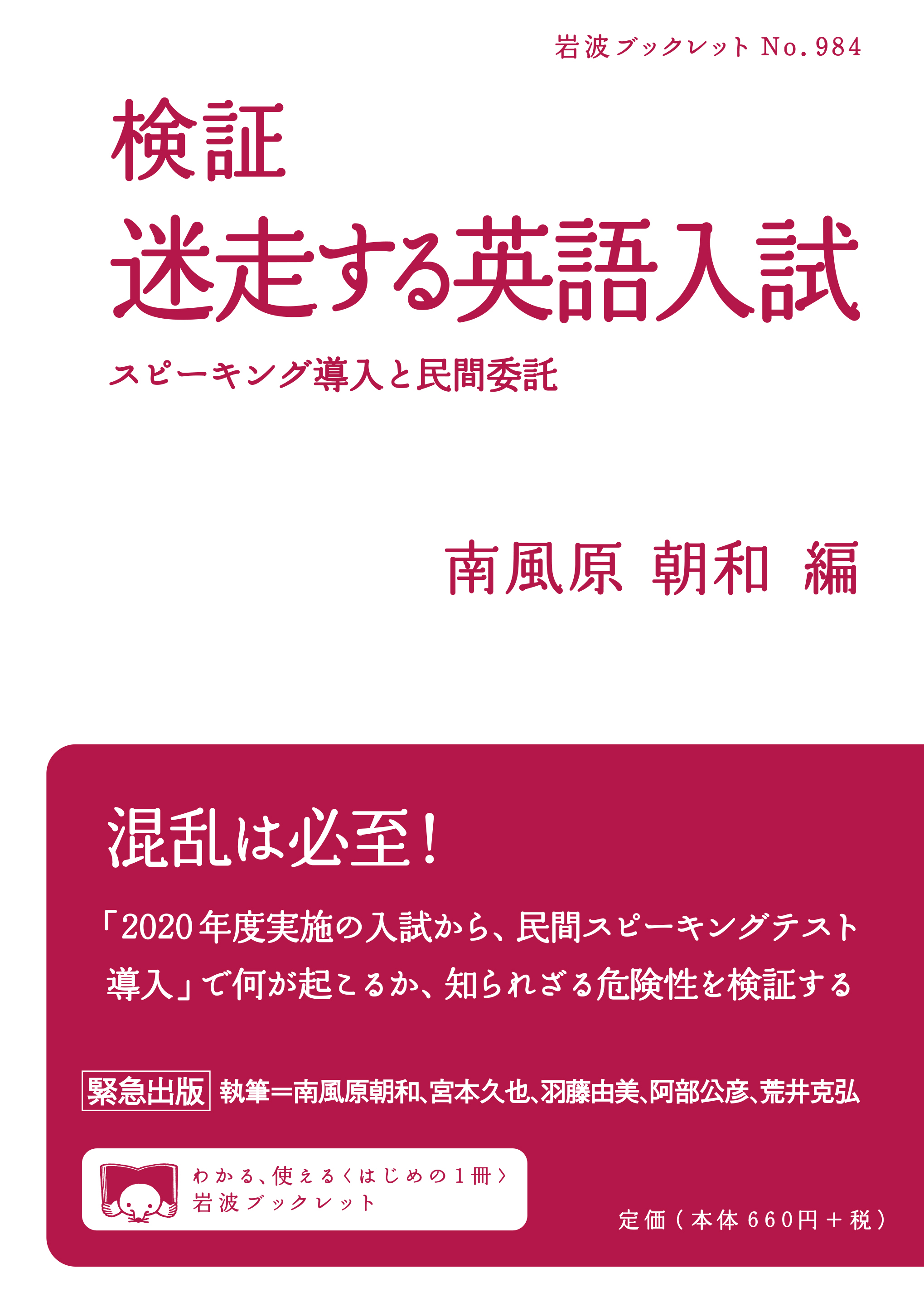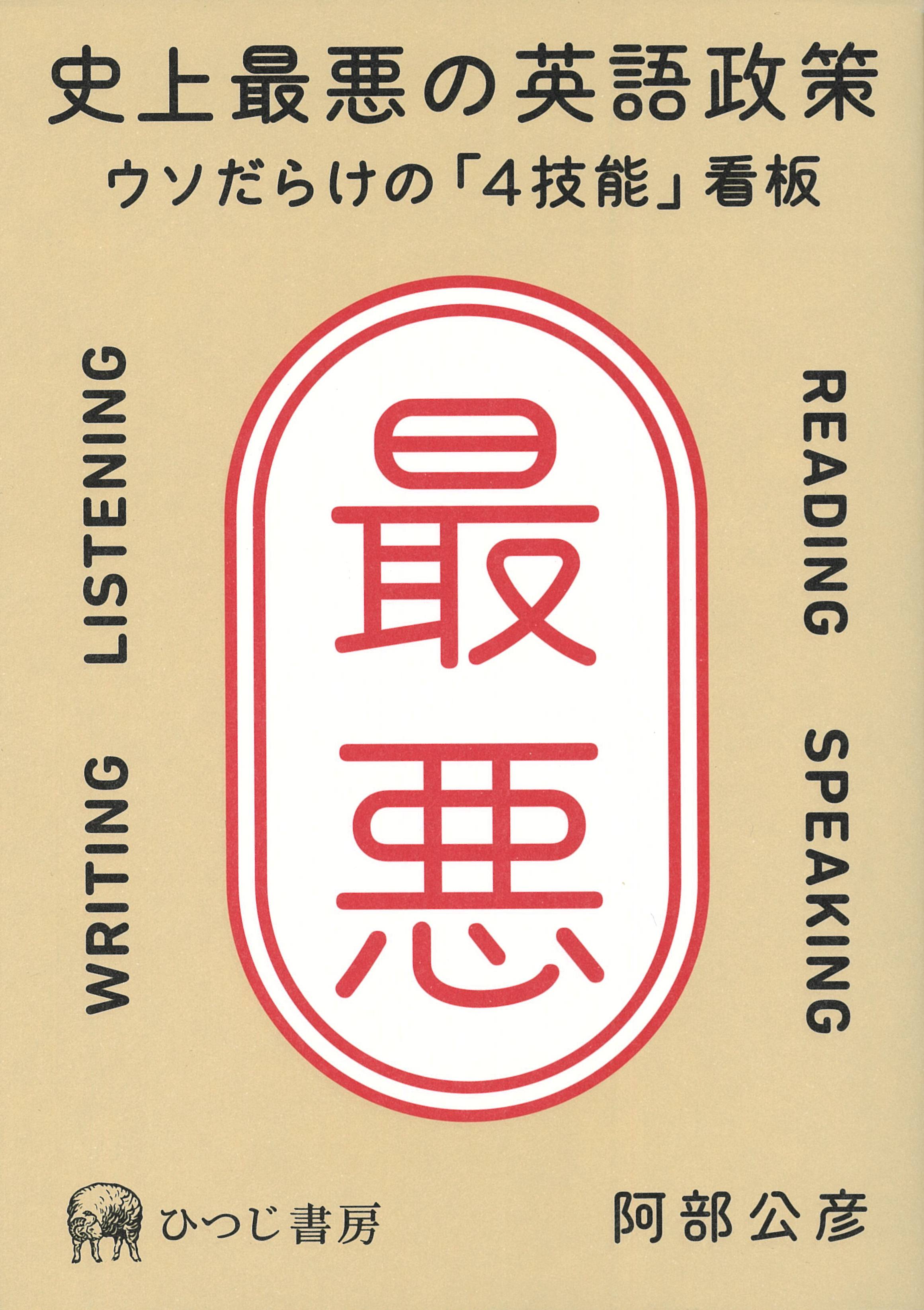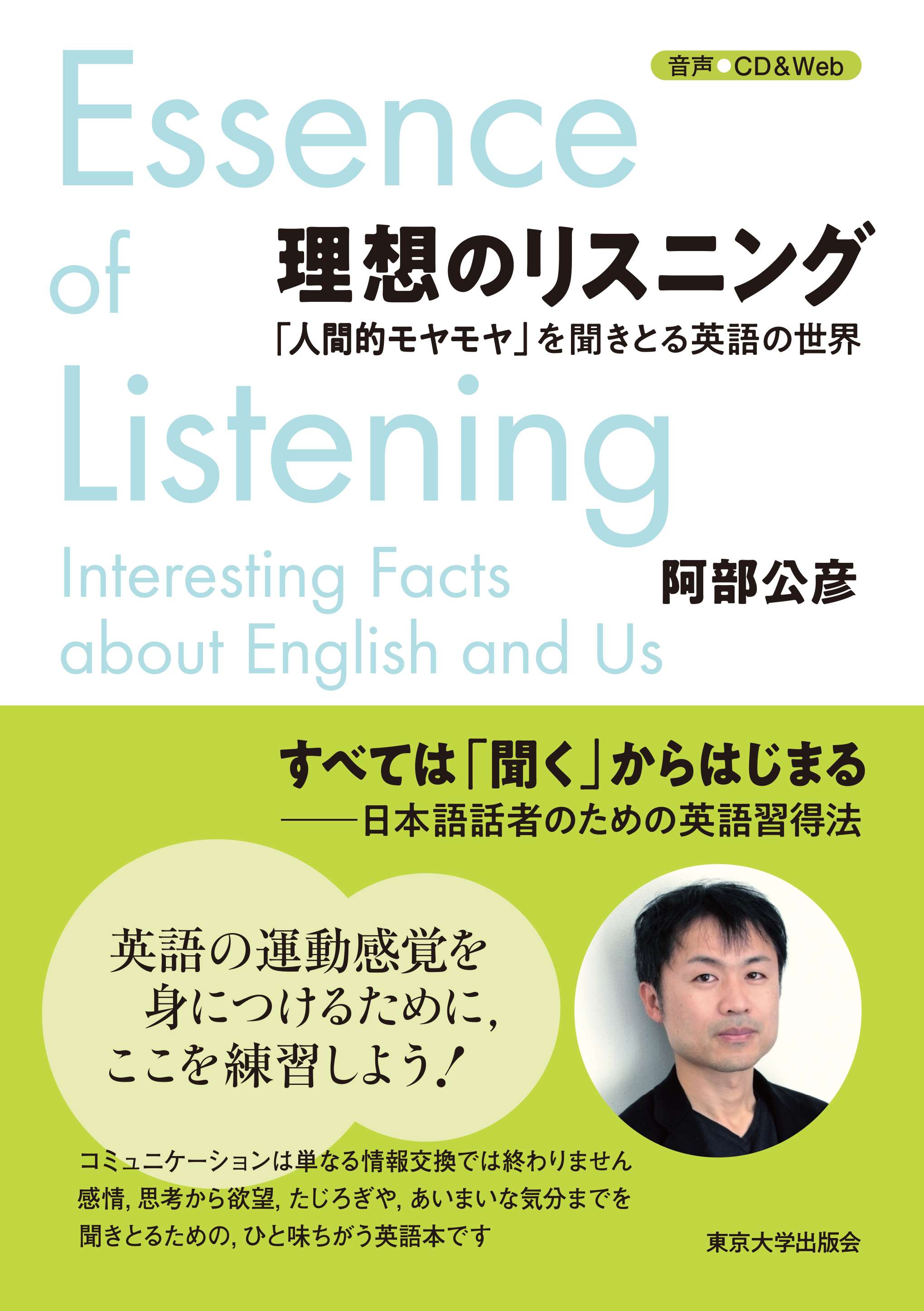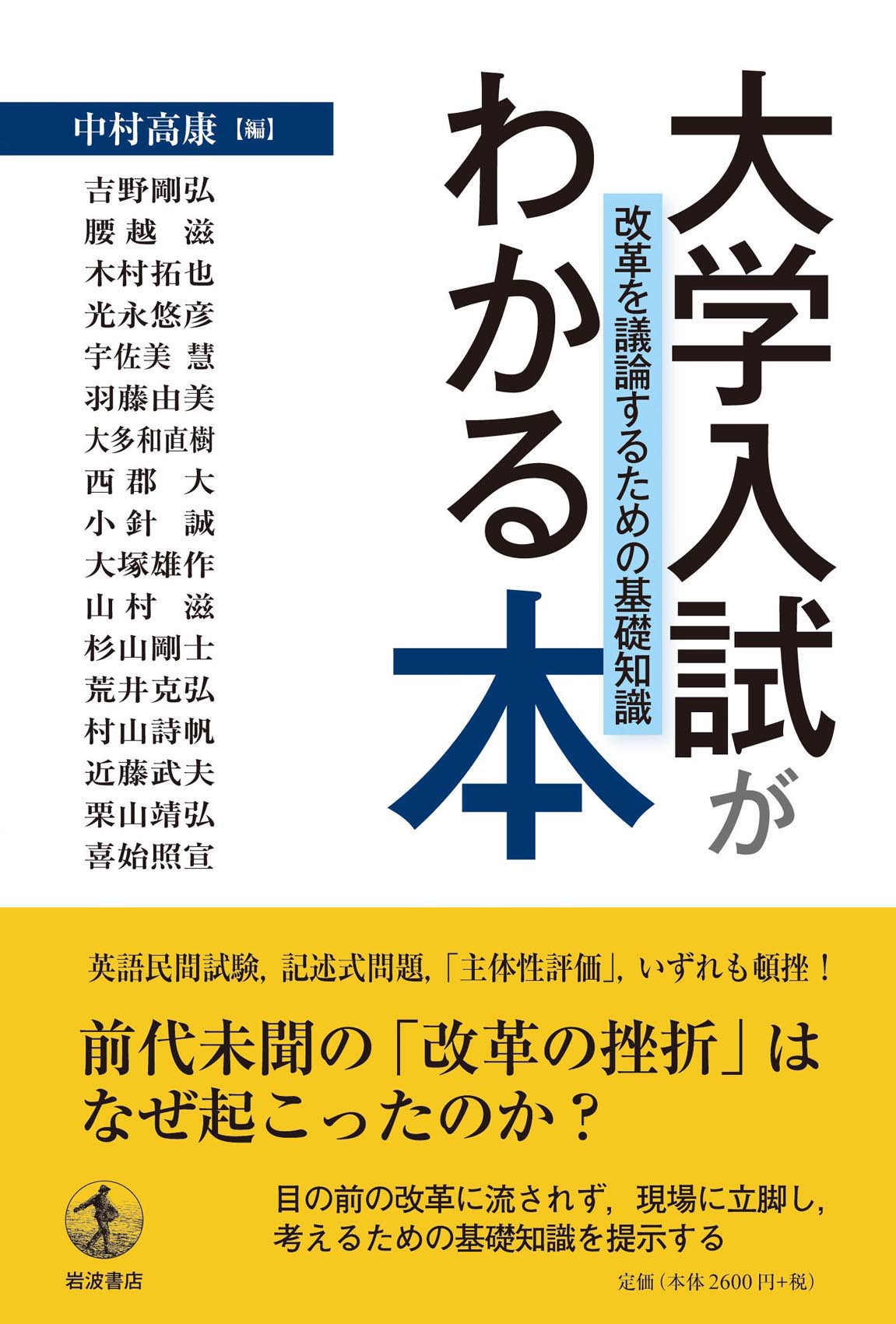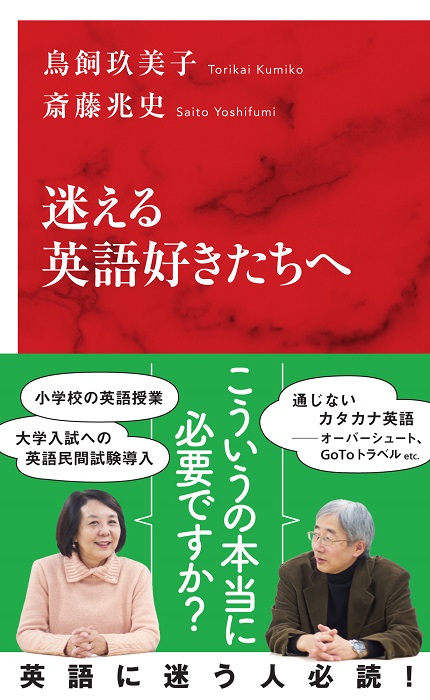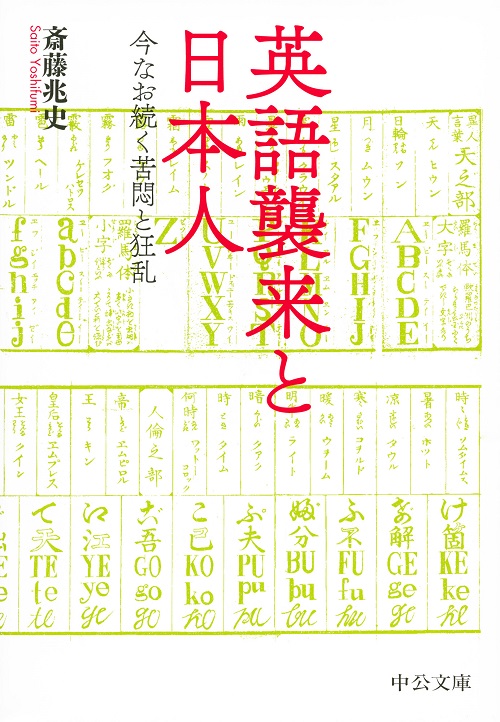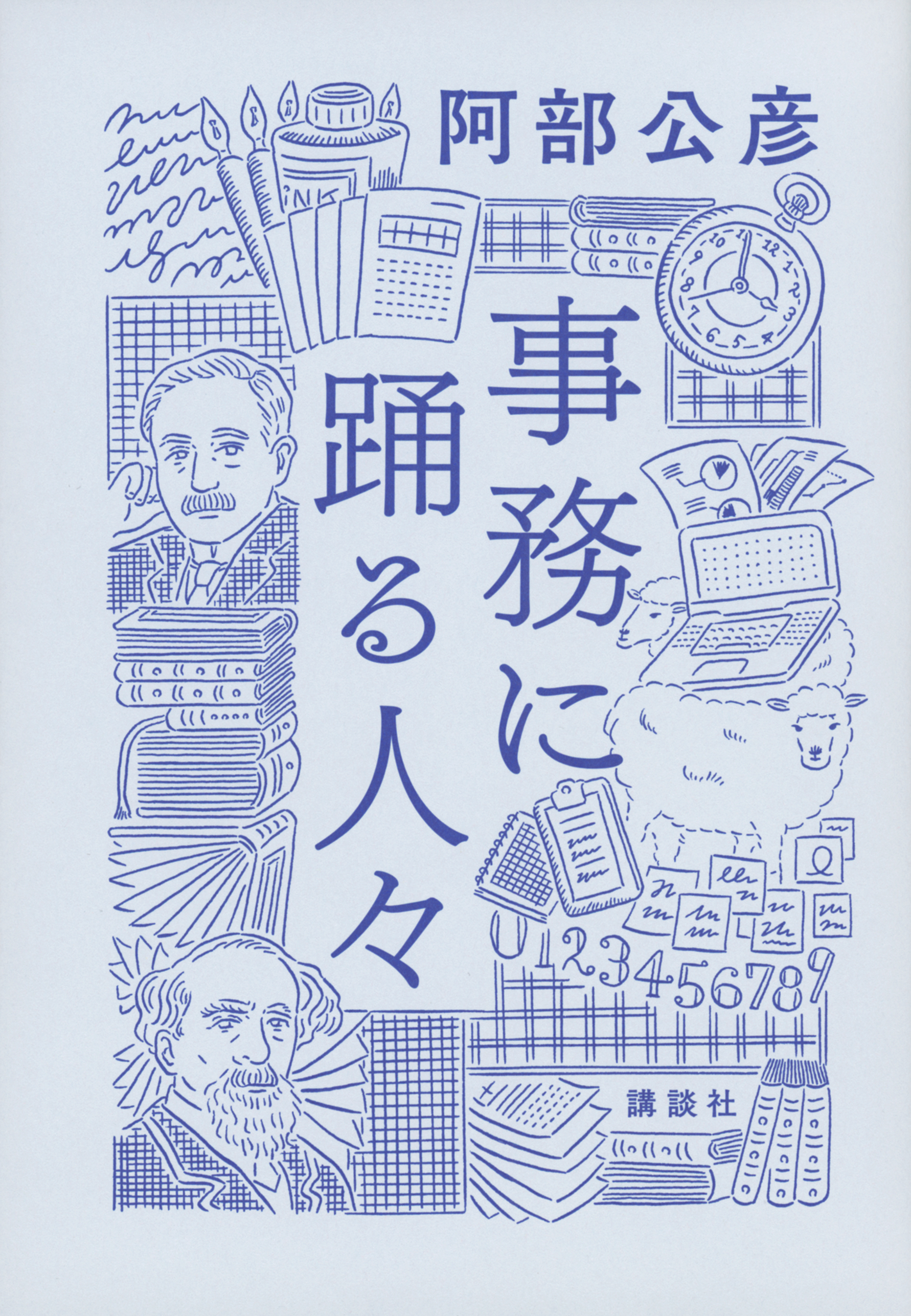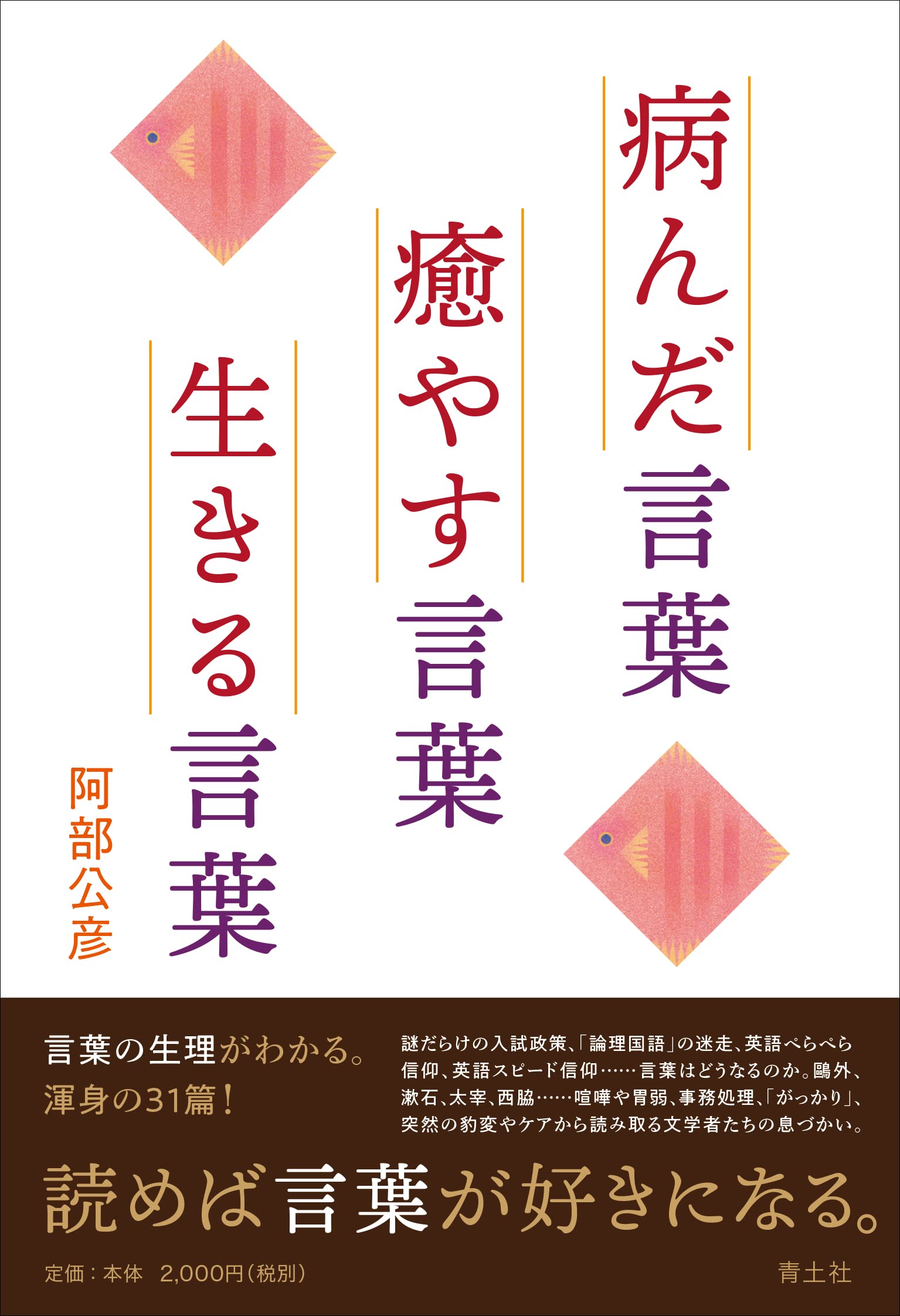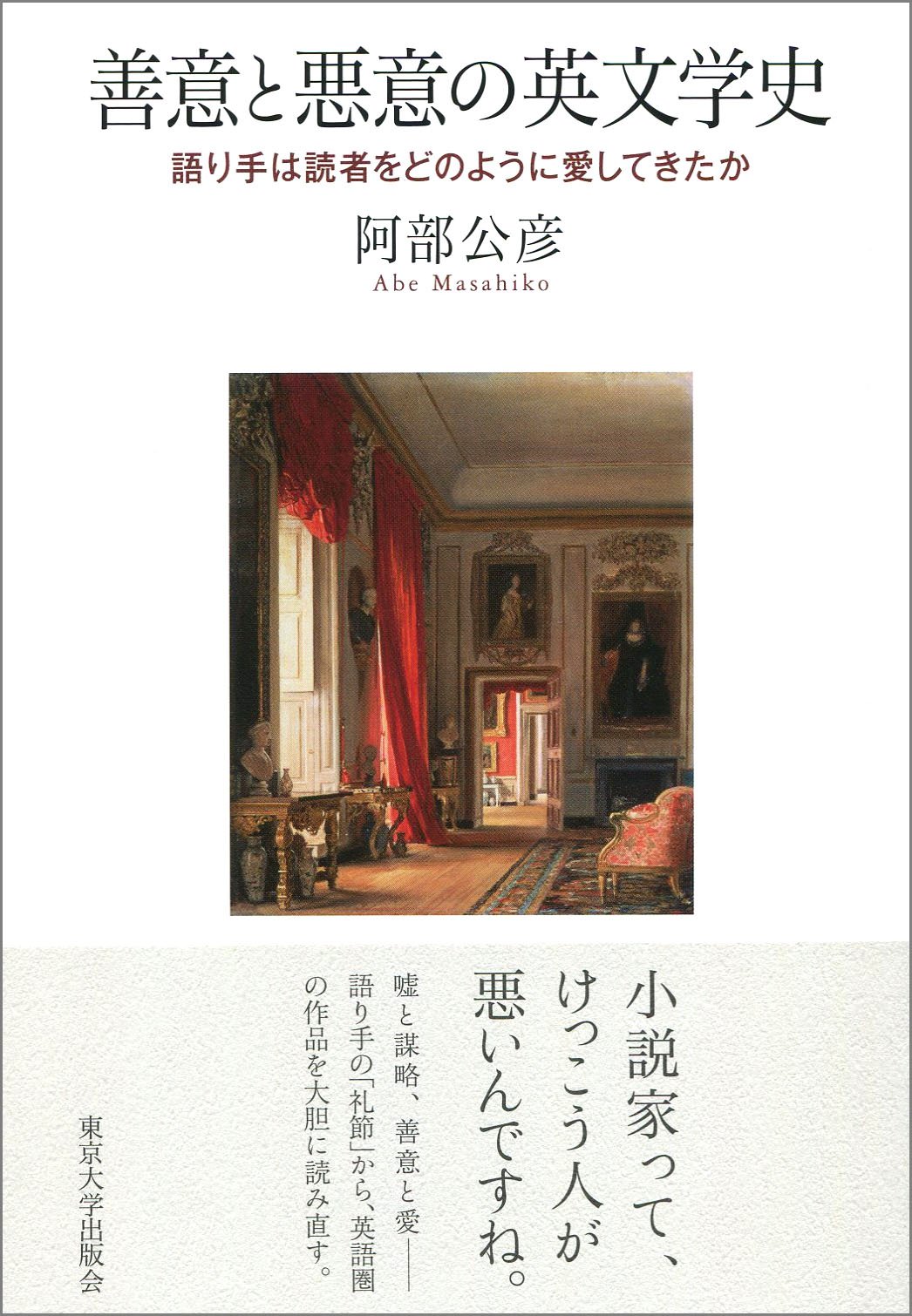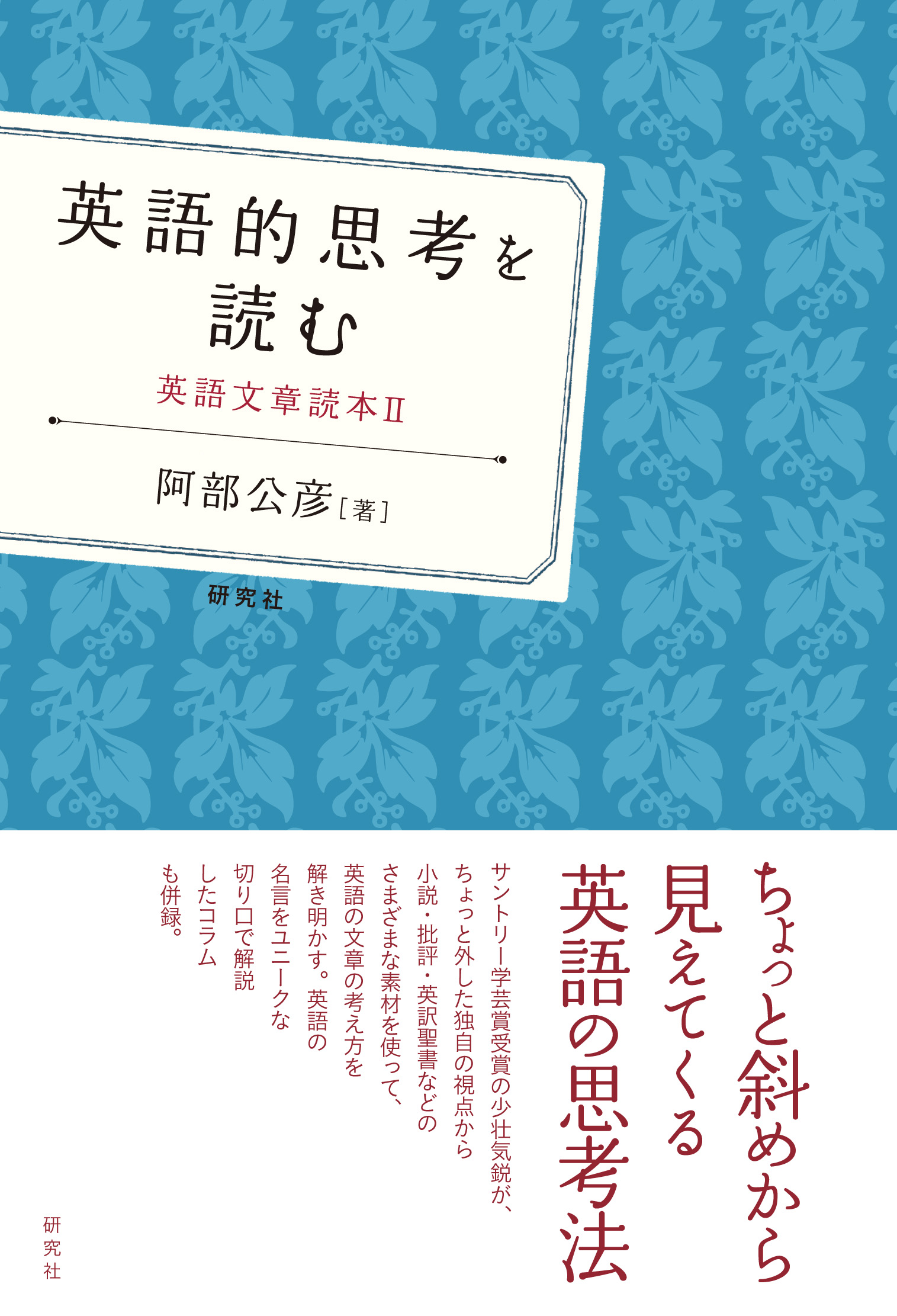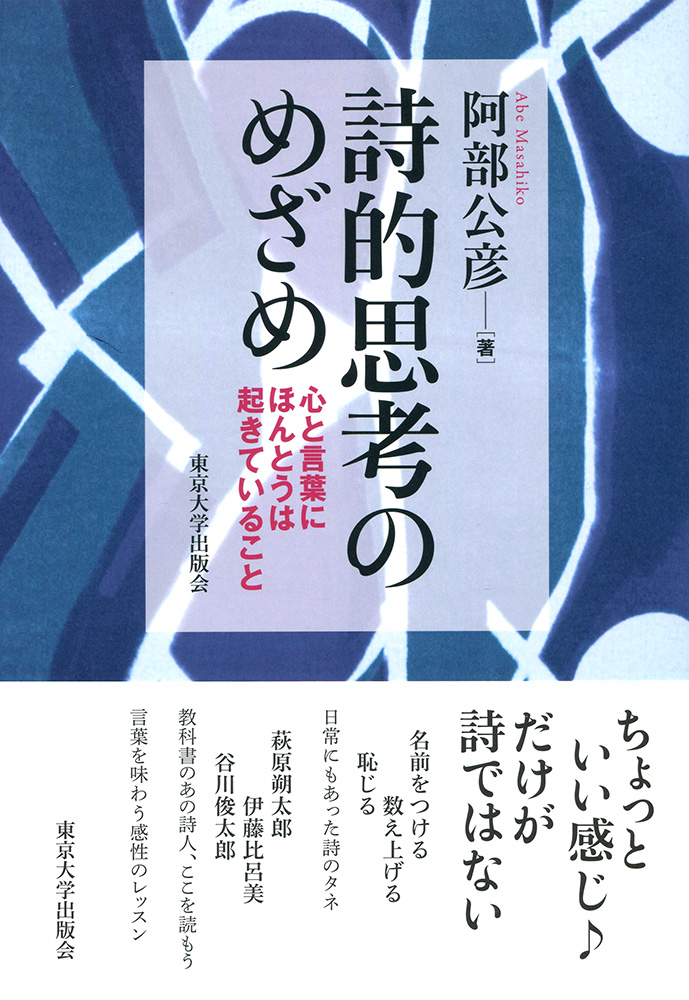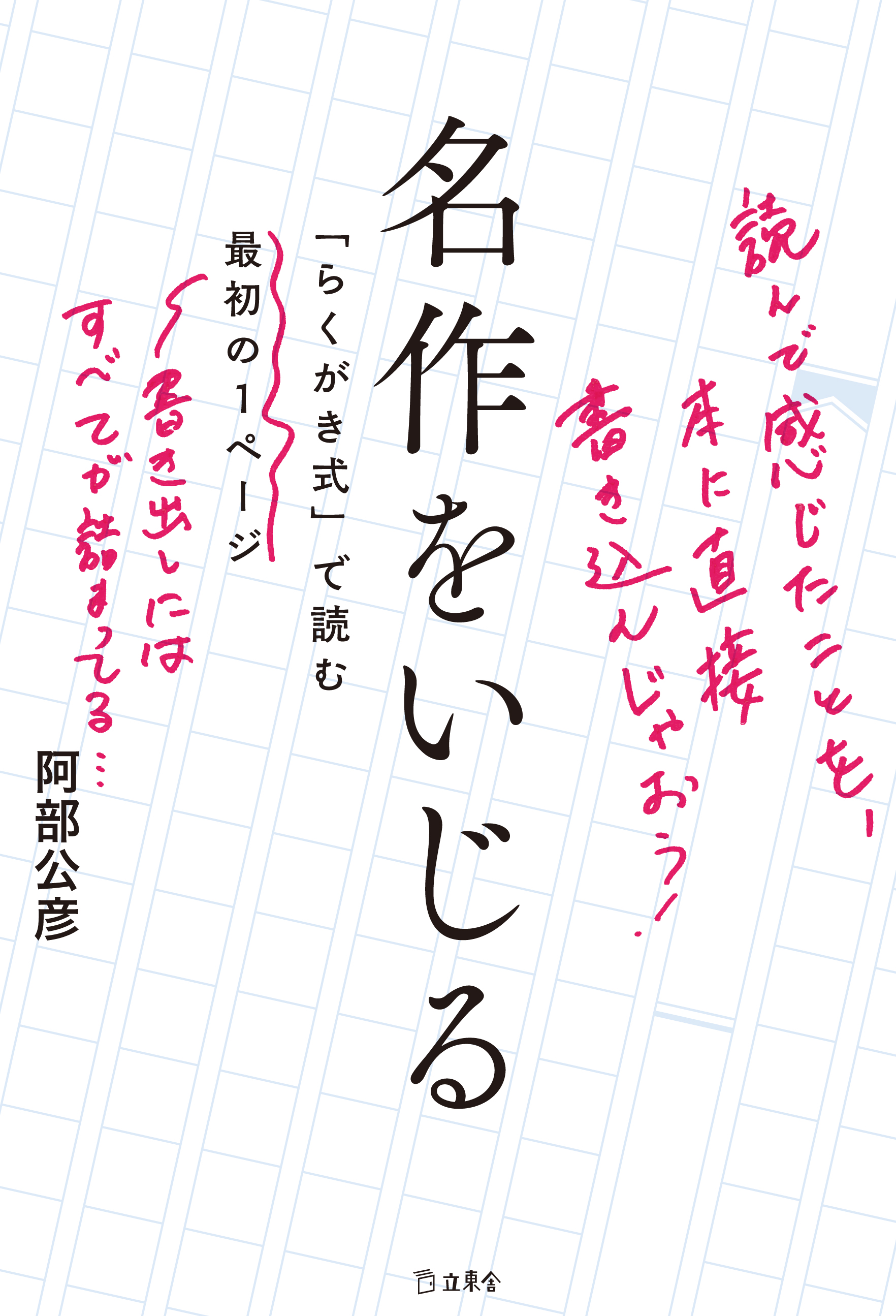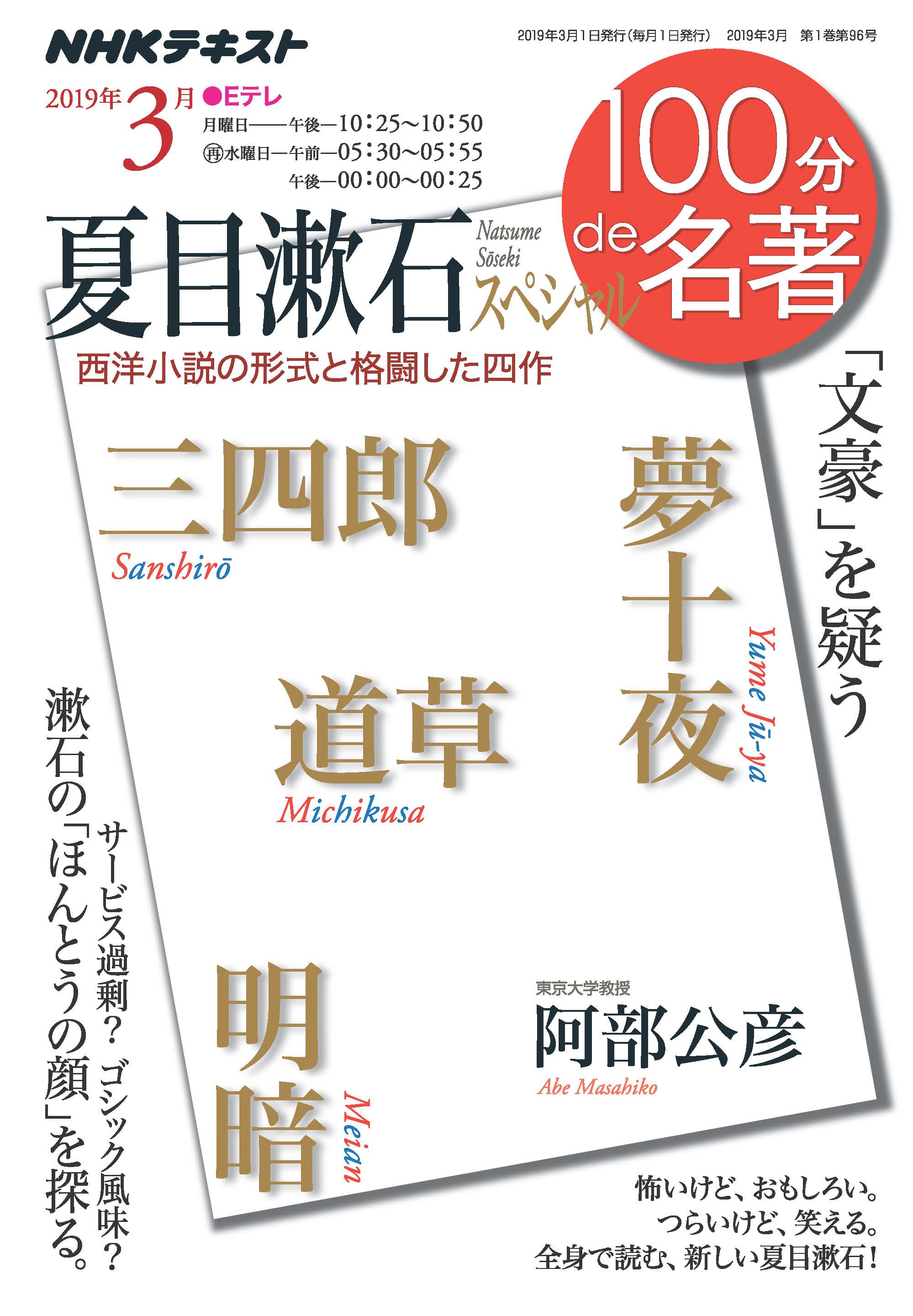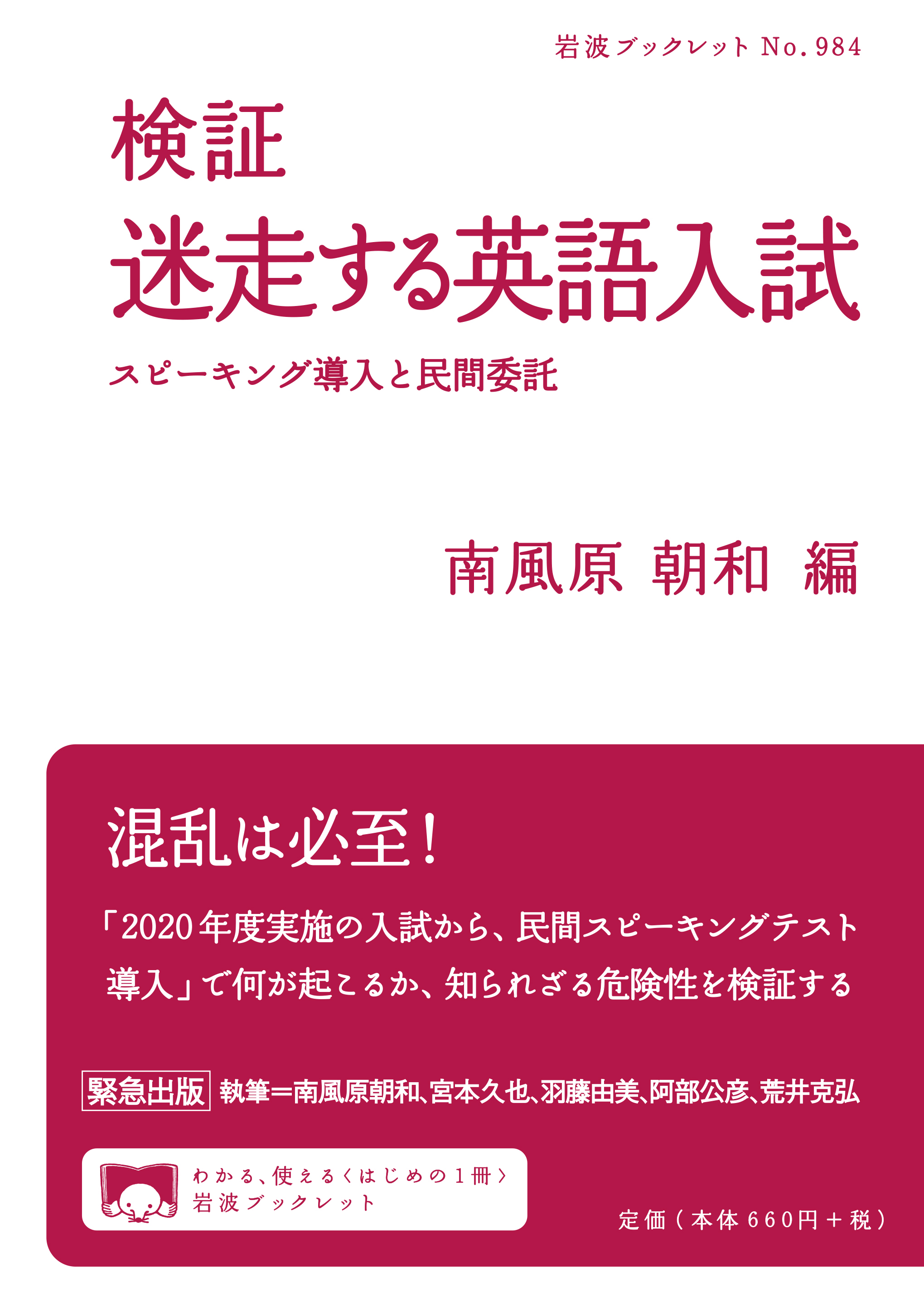
Title
Iwanami Booklet No. 984 Kensho: Meiso suru Eigo Nyushi (English Entrance Examinations Gone Astray: A Critical Investigation of the New Policy – Speaking Tests and Privatization)
Size
96 pages, A5 format, softcover
Language
Japanese
Released
June 05, 2018
ISBN
9784002709840
Published by
Iwanami Shoten.
Book Info
See Book Availability at Library
Japanese Page
Japan’s university entrance exams are in total disarray today. I am writing this now at the end of August 2019. Very soon, the new standardized university entrance exam system with its touted inclusion of private-sector-administered English language speaking tests will be launched. Yet already we are seeing signs of a sloppiness of preparation—something that was cause for concern from the beginning—that threatens to impair the whole system. How to make the tests available to persons with disabilities and what to do about cheating are just some of the mounting problems concerning the administration of the exams. And there are other, more serious issues: the lack of fairness in making the tests universally available; the additional financial burden imposed on students; the issue of conflict of interest that arises with having private-sector vendors prepare the tests; and the problem of how to compare the scores of different tests prepared by different companies.
Even before the new exam system was to be implemented, TOEIC suddenly announced that it would drop out of the proposed system. Other English-language testing companies, such as Eiken and GTEC, are already having problems setting their test dates and locations (as of the end of August 2019). We are starting to hear grumblings from other private companies that are supposed to be administering the language tests as well. More and more universities are deciding that the administration of the new tests is not secure or credible enough to be used for their entrance exams.
The politicians who led the drive to introduce this new system appear to be working through the Ministry of Education, Culture, Sports, Science and Technology (MEXT) to pressure the universities to use it, but in actual fact, a growing number of universities, particularly the former imperial universities, are working to protect themselves by diminishing the impact of the private-sector speaking tests with such tactics as decreasing the weight of the test scores in their overall evaluation of exam results.
This confusion is causing current second-year high school students—who will be the first to experience the new entrance exam system—and their parents great anxiety and dissatisfaction, to the point where the National Association of Upper Secondary School Principals has made a formal petition to MEXT to resolve the uncertainty. Likewise, all the major newspapers—from Sankei and Yomiuri to Nikkei, Mainichi, Asahi, Tokyo, and even Akahata—are pointing out the problems with the new exam system and regardless of their political affiliation are calling for its implementation to be delayed or cancelled altogether.
Having stirred up all this confusion, it is safe to say the new system isn’t just likely to fail, it has already failed.
What has brought us to this impasse? This book, published in June 2018, was an early warning bell concerning the “wandering” entrance exam policy and pointed out from numerous different angles the many problems with the proposed system. Regrettably, many of these problems are now reality. I can only assert that this book should prove a very useful resource for those researching this unprecedented confusion over Japan’s university entrance exam system.
As of the time of this writing, the end of this August, MEXT appears determined to push its new policy through, which means this book needs to be read as a raw commentary on an ongoing, actual situation. The basic information and findings herein should also prove very useful in future debates about the university entrance exam system.
Below is a list of the problems with the new system for testing English language speaking proficiency.
--Because they are being forced to spend an inordinate amount of time preparing students for the private-sector speaking tests, high schools are unable to give sufficient instruction in the basics of English. Students also fail to acquire the skills they will need to continue their studies at a university.
--There are problems in adapting what are originally diagnostic tests to competitive entrance exams.
--Can the grades from tests meant for different purposes and having different evaluation criteria be fairly compared?
--There are concerns about administering speaking tests across the board for 500,000 students sitting for university entrance exams. Measures to guard against accidents and cheating are sorely inadequate.
--The assertion that a change in the test format will push up students’ abilities is based on shaky assumptions at best.
--Grading such a test will take a large number of people and considerable time. How are a sufficient number of graders to be secured, and will their evaluations be based on a level of expertise that will safeguard the level of credibility expected of university entrance exams?
--The proposed speaking tests allow for any number of practice sessions, but this will only increase the burden on students and force preparations for entrance exams to start earlier.
A number of authors of diverse backgrounds have contributed to this book, each from a different perspective. Haebara Tomokazu, formerly a member of the University of Tokyo board and an expert on test theory, writes from his own experience serving on government committees about the lack of transparency in government decision-making processes. Miyamoto Hisaya, former chair of the National Association of Upper Secondary School Principals, writes about the constraints the situation imposes on high school students. Hatō Yumi, a specialist in applied linguistics who has worked for many years on developing English-language speaking tests points out very specifically how the new testing system is unrealistic, and Arai Katsuhiro, former deputy director of the National Center for University Entrance Examinations, writes about the structural problems with government administration of higher education. As for myself, Abe Masahiko, my specialty is British and American literature. I have already written about this issue in a previous book, Shijō saiaku no Eigo seisaku (The Worst-Ever English Policy; published by Hitsuji Shobō). In the current book, I argue that introducing a speaking test is not necessarily going to help to foster the English-language speaking ability of Japanese students.
It is my sincere hope that this book will prove useful in stopping the “reform” of the English testing system for university entrance exams from wandering (rampaging?) off course.
(Written by ABE Masahiko, Professor, Graduate School of Humanities and Sociology / 2019)



 Find a book
Find a book


